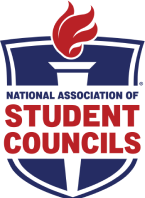For the majority of students, the student council experience is their first venture into formal leadership training and leadership organizations. This “newness” to leadership brings about many of the same challenges that advisers face in their roles as classroom teachers introducing students to new curricular concepts and information. As in the classroom, advisers must be cognizant of the learning styles of student leaders in order to help them gain mastery of leadership concepts.
There are 10 common denominators that serve as core practices and philosophies shared by effective advisers. Some are general concepts found in academic and co-curricular areas, while others are specific to leadership instruction.
An effective adviser:
- Believes that learning is continuous, occurs both inside and outside of the classroom, and requires a variety of methods and experiences in order to obtain optimal outcomes.
- Knows that students, who are involved in co-curricular activities, get more from those experiences when a caring adult is there to advise them.
- Helps ensure that student leaders understand the parameters, scope, origins of power, and the duties of their offices.
- Manages meetings, giving limited input when called upon to do so, but also helps to see that basic meeting rules are followed.
- Lets student leaders fail but helps them understand and cope with failure.
- Manages time. Allots time to be there for the students by recognizing how much time will be needed before committing to individual projects or other organizations.
- Helps student leaders set good goals for the organization and supports the planning to reach those goals.
- Trains student leaders in the basics of leadership and how they apply to the organization—duties, meeting management, the constitution, school rules and mission, communication skills, and more.
- Expects commitment and conveys it as a requirement for successful leaders.
- Challenges students to continue their leadership roles from the middle level to high school and beyond.
